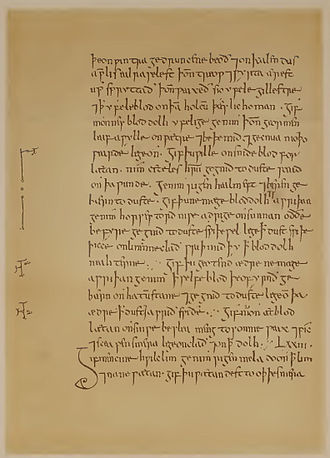
July 3rd is the traditional beginning of the Dog Days of the Summer, those sultry, frazzling days when it is too hot to be comfortable. The Dog Star is Sirius, one of our nearest neighbours. In fact, it doesn’t rise until July 19th. So there are other definitions of the Dog Days. Bald’s leechbook, a 10th Century medical book, defines the Dog Days as the 15 days before Lammas and 35 days after. Lammas is the 1st August. ( see my post on Lammas here.) A leech was the name for a Doctor. The book includes one of the first references to plastic surgery (for cleft palates). (see this British Library page for more details.).
In fact, Sirius rises on July 19th (but it would have risen on July 3rd in Egyptian times). However, it was felt that although Sirius hadn’t risen by July 3rd, it was in the sky, invisible and influencing the world. The Greek Almanac Poet Hesoid said the Dog Days started when Sirius came in to the sky not when it becomes visible.
‘But when the artichoke flowers, and the chirping grass-hopper sits in a tree and pours down his shrill song continually from under his wings in the season of wearisome heat, then goats are plumpest and wine sweetest; women are most wanton, but men are feeblest because Sirius parches head and knees and the skin is dry through heat.’ Hesiod
The perceived ill-effects of Sirius on the male of the species continued into the 18th Century:
‘In these Dog Days, it is forbidden by astronomy to all manner of people to be let blood or take physic. Yes, it is good to abstain all this time from women. For why all that time reigneth a star that is called Canicula, Canis, a hound in English, and the kind of the star is broiling and burning as fire. All this time, the heat of the sun is so fervent and violent that men’s bodies at midnight sweat as at midday: and if they be hurt, they be more sick than at any other time, yea, very near dead. In these days, all venomous serpents creep fly and gender, so that many are annoyed, thereby: in these times, a fire is good night and day and wholesome, seeth well your meals and take heed of feeding violently.’
The Husbandman’s Practice. 1729, quoted in the Perpetual Almanack of Folklore by Charles Kightly
Scientifically, Sirius is too far away to have an effect on our climate. But it was the brightest star in the sky. It preceded, both the Egyptian Floods and the really hot weather in Greece. There is also a tendency for commentators to blame riots on unusually hot weather. Otherwise, English references are really just copying classical Greek writers without much thought.
First Published July 2025
Discover more from And Did Those Feet
Subscribe to get the latest posts sent to your email.
